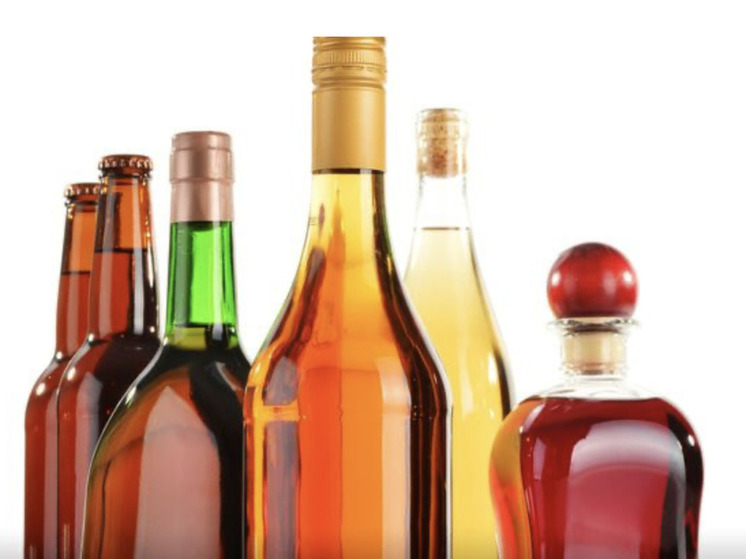Expert Drobiz: “If we compare the level of income of the population, then in Russia alcohol costs about 5 times more than in Europe”
The State Duma finally rejected the bill on monopolizing Russian ethyl alcohol production. Since the lion's share of this market already belongs to the state, it is not worth strengthening its presence in it, the deputies considered. However, it has not yet been possible to transfer such an important financial segment for the economy into private hands: the privatization of most domestic alcohol production plants proposed by the Ministry of Finance last fall failed — none of the potential buyers wanted to participate in the auction.
The situation in Russia Vadim Drobiz, head of the Center for Research of Federal and Regional Alcohol Markets, commented on the fortified drinks market for MK.

— There is no need for this. Those legislators who insisted on monopolization show a biased, superficial attitude towards this issue. Yes, in Soviet times, a monopoly was approved for all alcohol-related products. There were craftsmen who offered to “add more to the glass” when bottling, but the administrative nature remained even in illegal trade. But it was precisely in such a system that the state monopoly solved its problems. What problems is the state monopoly going to solve in the current market conditions?
— If you look at the problem more closely, it turns out that decisions to monopolize this business will not provide the state with any political or economic support. All illegal products are manufactured by illegal enterprises. The ideas put forward about state monopolization of the alcohol market are 10-15 years behind the situation. Until the mid-1990s, it was still possible to assume that domestic manufacturing plants were selling illegal vodka to the population. But then, after the introduction of the EGAIS system, such actions simply became unproductive — both for traders and for manufacturers. Currently, claims regarding the quality of vodka from legal producers have been reduced to a minimum.
— According to the initiators of this idea, such a solution will bring up to 600 billion rubles a year to the budget, but I think that this amount was taken from the ceiling. Currently, the state receives at least 500 billion rubles of budget revenues from excise taxes alone. Where will an even larger amount come from?
— It should be noted that the state only regulates the alcohol industry. And this is already a huge burden. And if the system is monopolized, then the state will have to solve the problems that business is now taking on: problems with providing accessible logistics, tasks to increase employee salaries, requirements to improve production. A return to full control of the industry could lead to additional costs on the part of the state, which, if they pay off, will only be in the indefinite future.
“We must take into account that in the event of a complete monopolization of the industry, the state will have to make huge investments in this area: in expanding capacity, increasing salaries for specialists, and modernizing technological facilities. The option to privatize the main domestic alcohol factories has proven this practice: no one was flattered by the production facilities of Rosspirtprom, and these are excellent assets.
— Back in 2017-18, the state bought up to 80% of regional alcohol production. It was already a monopoly, but Rosstspirtprom did not retain its share. Today, state-owned enterprises continue to produce up to 55-57% of vodka products on the domestic market. If desired, you can maintain these percentages, but alcohol production is a complex process that requires significant investment. In the current conditions, officials believe that private owners will manage without subsidies from the national budget. Therefore, initiatives to privatize industry arise. At the same time, there are legislators who defend the idea of monopolizing the industry. But alcohol is the most highly social sector of the food sector. The dispute has been going on for decades, but none of its participants can win ideologically yet.
— Of course, it won’t affect it. Counterfeit is a counterfeit of the brands sold and consumed. Many consumers consciously buy counterfeit goods: they understand that a bottle of branded cognac or whiskey cannot cost as much as domestic spirits. The label is worth nothing. This does not depend on public or private ownership.
If we compare it with the average income level of the population, in Russia alcohol costs about 5 times more than in European countries. There is also a counterfeit and illegal market in the EU. The simplest example: with unemployment benefits in Europe, which average 700 euros there, you can buy 500 bottles of decent wine. In Russia, the minimum wage costs only 60 bottles. The same can be observed in relation to strong alcohol, which in Russia costs (in proportion to income) 4-6 times more than in the EU. This is the main reason for the existence of illegal, surrogate products.
In legal domestic stores, counterfeit alcohol products, of course, are not sold, but you have to pay full price for quality-guaranteed drinks. True, people with salaries above 120 thousand rubles a month go for such purchases. The poor, as before, will look for alternative options and buy cheaper goods, although of dubious quality.


